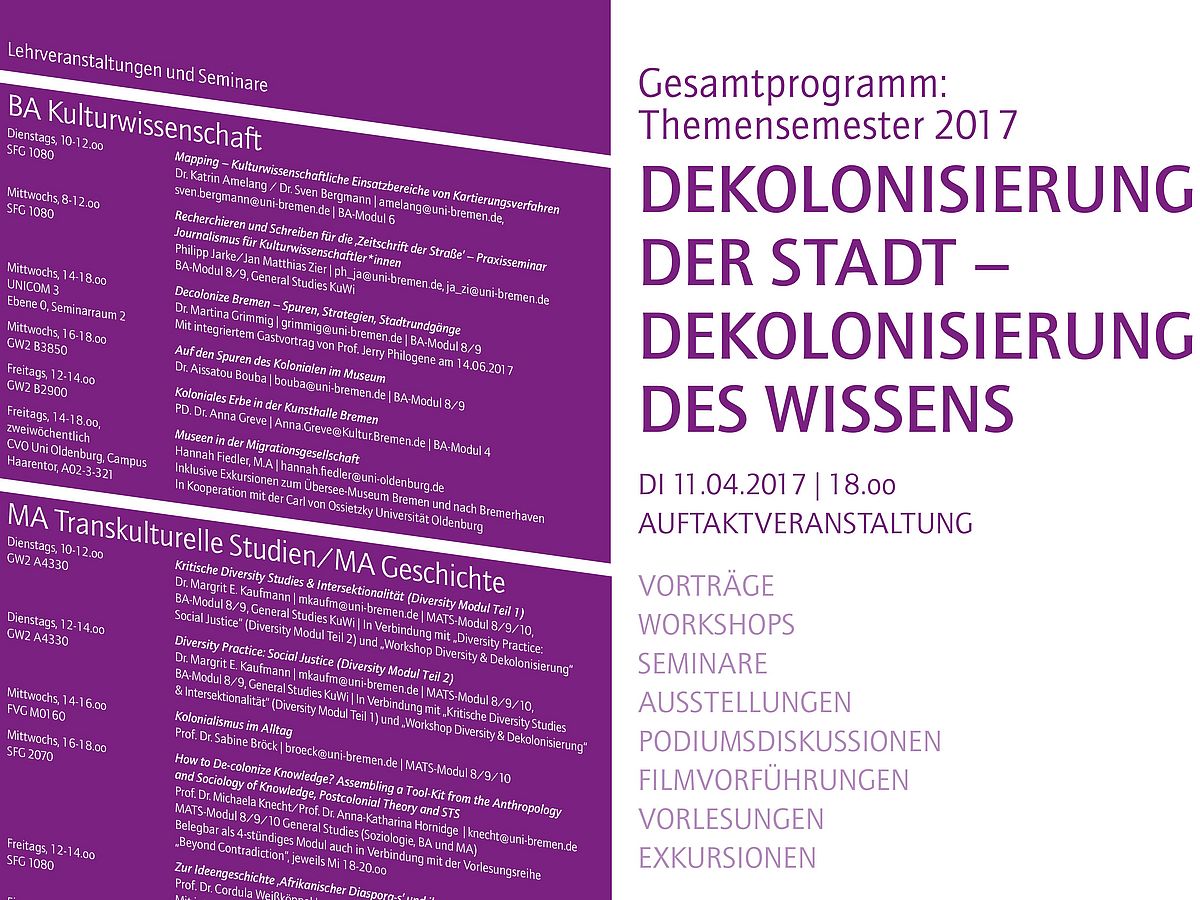Theme-centered Semester 2017

How we perceive the world and the type of knowledge we produce are inextricably bound up with (told and untold) narratives on colonization that remain potent right down to the present. Colonialism has been deeply etched into Bremen’s cityscape and has left a deep and lasting mark on the city’s urban culture. Bringing to light these intricate strands and doing justice to them in practice is the overriding concern of Decolonizing the City – Decolonizing Knowledge. This presupposes a willingness to critically confront Eurocentric knowledge production, to recognize a plurality of knowledge traditions, disqualified truths, modes of thought and methodologies; but also a remodelling of the postcolonial urban memorial landscape.
The Department of Anthropology and Cultural Research (IFEK) chose the topic ‘Decolonizing the City – Decolonizing Knowledge’ for the Summer Semester of 2017. We organized a varied programme with numerous public events and transdisciplinary seminars, public lectures and workshops involving internationally renowned scholars, together with other university Departments and partners outside of University. The aim of the semester topic was to contribute to contemporary debates on the colonial legacy as part of the decolonization process itself and as a way of contributing to a democratic society in Bremen. We asked what needs to be done to uncover the colonial legacy / colonial continuities in academia and everyday life, andthe steps needed to implement decolonization in practice. How can our knowledge of cities and mega-cities, and our research-led approach to Bremen itself be decolonized? What forms of transformative knowledge production are conceivable allowing us to transcend Eurocentrism and build bridges between various traditions? And how does the demand for decolonization connect with the demands for social justice, anti-discrimination and anti-racism? The theme-centered semester also included an excursion (with guided tour) to the exhibition ‘German Colonialism. Fragments of a History and the Present’ at the German Historical Museum in Berlin on 5 May 2017. You can view the full programme of this theme-centered semester here.
